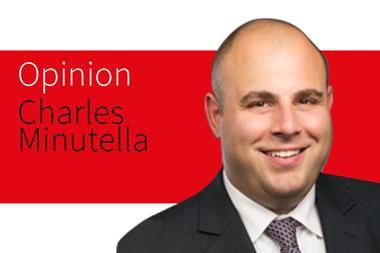The latest leak has opened up a “Pandora’s Box” of issues. How should compliance teams respond?
2.9 terabytes of data. 11.9 million documents. The Pandora Papers are the largest leak of offshore data in history, exposing the hidden dealings of 35 world leaders, more than 330 politicians and public officials in 91 countries and territories, and a network of international criminals.
Although moving wealth offshore is not illegal—and there are legitimate reasons some choose to do so—the ease with which these individuals have been able to operate in secrecy and shield their assets from public and regulatory scrutiny is a stark reminder of the disparities of the global financial system, and our road ahead.
So what are the implications of the latest ICIJ investigation for compliance officers? And what fallout can we expect to see?
A systemic issue
The level of anonymity that the ‘Power Players’ identified in the Pandora Papers have been able to operate in has helped them shield assets from creditors, tax collectors and even ex-spouses.
However, this secrecy, enabled by the 14 offshore firms at the heart of the investigation, is also what makes it easier for the proceeds of crime or corruption to be laundered and filtered through the global financial system undetected.
Overall, and somewhat disappointingly, the leaks are however nothing new but a reminder of a system that enables this behaviour.
There has been growing momentum to build a new global standard on ultimate beneficial ownership (UBO) transparency to address this issue.
To name a few examples: in the UK, the government has committed to developing a register of company beneficial ownership by 2023, as well as joining the Beneficial Ownership Leadership Group to support global efforts.
Around the world, many countries are taking a similar approach. EU member states are required to introduce public beneficial ownership registers last year.
While in the US, the Financial Crimes Enforcement Network (FinCEN) has been tasked with creating UBO reporting requirements for corporations, and maintaining a UBO registry.
The Pandora Papers are the latest in a line of leaks that are contributing to this movement. In the short term, we can expect to see a further crackdown on businesses and individuals that abuse the system.
It is worthwhile remembering though that different stakeholders involved in the conversation will seek transparency, or lack thereof, for different reasons and that there is still a long way to go.
The mandates for UBO registries are often stifled by lack of enforcement, and the global vision to have ownership data available and to increase transparency at large will require continuous effort.
Nevertheless, compliance teams operating in certain sectors, for example real estate and law firms, will want to take this latest leak very seriously and adapt their compliance processes accordingly.
Reputational risk potential
Now is not the time to stand still; there are several actions that compliance teams can take to reinforce best practice and protect themselves against future risks.
The first step will be to screen your existing client base, to check whether you have any connections to the initial list of ‘Power Players’ or ‘Secrecy Brokers’ named in the Pandora Papers.
Although those featured do not automatically meet the definition of a Politically Exposed Person (PEP) or Special Interest Person (SIP), they may still pose a potential regulatory or reputational risk.
It is important to note that the early headlines are just the tip of the iceberg. The ICIJ refers to more than 330 politicians and 130 billionaires, but they have not yet released all of the names. The use of negative news from reputable sources will be instrumental to keep on top of the situation as it evolves.
Do your due diligence
This moment should also be the catalyst for a more comprehensive compliance review to ensure that customer onboarding and ongoing monitoring processes are fit for purpose.
Combating financial crime is an enormous, incredibly complex task. Although technology and automation can streamline the screening process, sometimes additional due diligence is required to investigate red flags.
Offshore structures are just one such red flag that should warrant deeper due diligence into both new and existing customers, as they could potentially be shielding unethical or illicit activity. And the level of detail required to investigate complex cross-border ownership structures cannot always be found in a simple web search alone.
The full picture might only be available in documents and information that may not be indexed or easily accessible, so it is only by working with a specialist research team to conduct enhanced due diligence that compliance professionals can be confident they have the most authoritative source to support any suspicions or concerns.
Opening Pandora’s Box
The findings of this leak are hardly revolutionary. But they are an important reminder of shortcomings in the global financial system that need to be addressed.
The legal and practical issues concerning transparency and beneficial ownership continue to evolve.
But while the governments and regulators continue to work towards building a consistent global standard, the onus is on businesses themselves to ensure their compliance programme is fit for purpose and suitable for the evolving environment.
Laetitia Hoffmann is market specialist, Due Diligence at Dow Jones.




















No comments yet